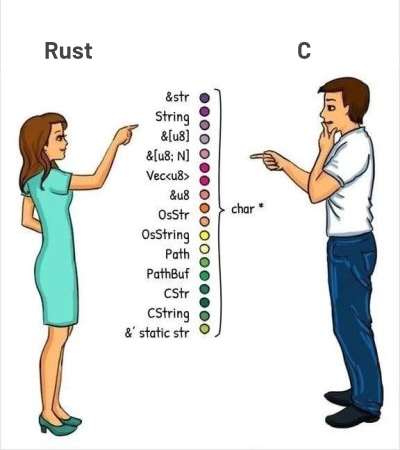Personally, I have nothing against the emergence of new programming languages. This is cool:
- the industry does not stand still
- competition allows existing languages to develop and borrow features from new ones
- developers have the opportunity to learn new things while avoiding burnout
- there is a choice for beginners
- there is a choice for specific tasks
But why do most people dislike the C language so much? But it remains the fastest among high-level languages. Who benefits from C being suppressed and attempts being made to replace him? I think there is only one answer - companies. Not developers. Developers are already reproducing the opinion imposed on them by the market. Under the influence of hype and the opinions of others, they form the idea that C is a useless language. And most importantly, oh my god, he's unsafe. Memory usage. But you as a programmer are (and must be) responsible for the code you write, not a language. And the one way not to do bugs - not doing them.
Personally, I also like the Nim language. Its performance is comparable to C, but its syntax and elegance are more modern.
And in general, I’m not against new languages, it’s a matter of taste. But when you learn a language, write in it for a while, and then realize that you are burning out 10 times faster than before, you realize the cost of memory safety.
This is that cost:

Ada is still "new" compared to C, so I suspect the OP would have similar problems with it.
The question of what advantages Rust has over Ada is a good one, but I think it's been pretty well discussed already. Just a quick google for "Rust vs Ada" turns up lots of discussions.
I don't know Ada, and I love Rust, but it seems entirely plausible that the reasons for Rust's greater popularity is primarily social rather than technical. Before I learned about Rust, my impression from talking to more experienced C++ programmers was that Ada was an interesting language with good ideas that was ruined by being "designed by committee." Rust is at least the third major attempt to design a language specifically to draw some of C++'s user base, the other two being D and Ada (there are other examples that are more debatable; e.g. Erlang and Nim). But hey...at least one of them is finally gaining some ground!